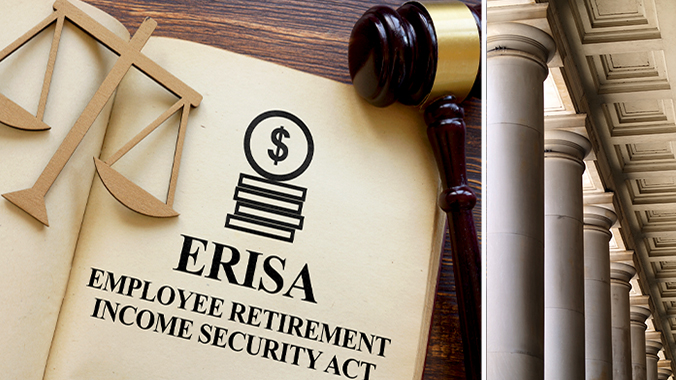LLCs from the Ground Up: How to Draft, Structure, Defend, and Leverage for Tax and Estate Success





4 hour CLE
Tuition: $295.00
Get this course, plus over 1,000+ of live webinars.
Learn More
Training 5 or more people?
Sign-up for a law firm subscription plan and each attorney in the firm receives free access to all CLE Programs
Program Summary
Session I – Foundations of LLC Use in Tax and Estate Planning – Robert S. Barnett
This session will provide a foundational synopsis of the mechanics of limited liability companies (LLCs) and their critical role in modern tax and estate planning. Attendees will explore how LLCs have evolved since the implementation of the Check-the-Box regulations and gain insight into entity classification options, including disregarded entities, partnerships, C corporations, and S corporations. The session will also offer a comparative analysis of LLCs and family limited partnerships (FLPs), highlighting key considerations for choosing the appropriate structure in various planning contexts.
Key topics to be discussed:
- How LLCs evolved post-Check-the-Box rules
- Choice of entity: Disregarded, partnership, C corporation, S corporation
- Comparison to FLPs (family limited partnerships)
Session II - Pitfalls and Practice Tips - Robert S. Barnett
This session will focus on common pitfalls and practical strategies in LLC-based tax and estate planning. Attendees will learn how to identify and address misalignments between operating agreements and gifting or trust structures, navigate issues related to valuation discounts and appraisals, and bridge communication gaps that often arise between legal and CPA teams during reporting. The discussion will emphasize proactive planning approaches to mitigate risk and enhance coordination among advisors.
Key topics to be discussed:
- Misalignments between operating agreements and gifting or trust structures
- Use of valuation discounts or appraisals
- Miscommunication gaps between legal and CPA teams in reporting
Session III - LLC Operating Agreement Drafting: Legal and Tax Nuance – Jeff Cunningham
This session explores the critical legal and tax considerations involved in drafting LLC operating agreements. Key topics include strategies to avoid common pitfalls under §704(b) allocation rules, best practices for structuring control provisions between managers and members, and effective approaches to drafting buy-sell clauses and valuation mechanisms. This session is designed to help practitioners strengthen their drafting skills and anticipate complex tax implications in LLC agreements.
Key topics to be discussed:
- Avoiding §704(b) allocation pitfalls
- Structuring manager vs. member control provisions
- Drafting buy-sell clauses and valuation mechanics
Session IV - Strategic Planning I – Income Shifting and Freeze Structures – Rustin Diehl
Income shifting and freeze structures are sophisticated tax and estate planning strategies aimed at minimizing tax liabilities and preserving wealth for future generations. Income shifting transfers income-producing assets to lower-tax-bracket individuals or entities, optimizing tax efficiency. Freeze structures, such as profits interests freezes, grantors retained annuity trusts (GRATs), or installment sales to intentionally defective grantor trusts (IDGTs), lock in the current value of appreciating assets for estate tax purposes, allowing future appreciation to pass to beneficiaries with minimal tax impact. The profits interests freeze generally leverage partnership structures to allocate future profits to heirs while freezing the grantor’s economic interest, ensuring tax-efficient wealth transfer.
Key topics to be discussed:
- Profits interests freeze: Drafting profits interests in partnerships to allocate future profits and appreciation to beneficiaries, freezing the grantor’s economic stake to minimize estate tax exposure while retaining control
- Freeze structure tools: Utilizing GRATs, IDGTs, or preferred partnership structures to lock in current asset values for estate tax purposes while passing appreciation to heirs
- Tax compliance: Ensuring adherence to IRS rules, such as gift tax exemptions, valuation requirements, and grantor trust regulations, to avoid audits or penalties
- Wealth preservation: Balancing tax savings with asset protection and control to align with long-term estate planning goals
Session V - IRS Scrutiny, Audit Risk, and Defensive Planning – Allen N. Bradley
This session will provide a synopsis of the BBA Centralized Partnership Audit Regime, including a breakdown of the key stages of a BBA audit and how each phase can affect partnership operations. It will also cover strategies for drafting LLC operating agreements to anticipate and address potential audit issues. Additionally, the session will draw from lessons learned from the controversies involving conservation easement syndications, highlighting the increased IRS scrutiny and the resulting implications for attorneys representing partnerships throughout their lifecycle—from formation and compliance to audit and resolution.
Key topics to be discussed:
- Review BBA centralized partnership audit regime
- Describe stages of a BBA audit
- Drafting the operating agreement of an LLC to anticipate a BBA audit
- Lessons learned from syndication of conservation easements
Session VI - Asset Protection and Creditor Structuring – Jay D. Adkisson
LLC membership interests and creditors explores the judgment enforcement methods that creditors may employ against a debtor's LLC interest, including charging orders, and asset protection considerations to deal with those potential challenges.
Key topics to be discussed:
- The operations, limitations and effects of charging orders
- How creditors may circumvent charging order exclusivity
- Planning and structuring considerations for holding LLC and partnership interests
Session VII - LLCs and Digital Assets/Crypto Holdings – Rustin Diehl
Limited Liability Companies (LLCs) are increasingly used to manage and protect digital assets, including cryptocurrencies and other blockchain-based holdings. LLCs provide liability protection, flexible tax treatment, and operational control, making them ideal for holding volatile and complex digital assets. They also facilitate estate planning and asset segregation, ensuring compliance with evolving regulatory frameworks while mitigating risks associated with hacking, fraud, or legal disputes.
Key topics to be discussed:
- Liability protection: LLCs shield personal assets from risks tied to digital asset ownership, such as lawsuits or creditor claims
- Tax flexibility: Electing pass-through taxation or corporate treatment to optimize tax outcomes for crypto transactions, including capital gains and staking income
- Regulatory compliance: Structuring LLCs to align with securities, anti-money laundering (AML), and know-your-customer (KYC) regulations for digital assets
- Estate planning: Using LLCs to manage private keys, wallets, and beneficiary designations, ensuring seamless transfer of digital assets upon death or incapacity
Date / Time: August 21, 2025
- 12:00 pm – 4:30 pm Eastern
- 11:00 am – 3:30 pm Central
- 10:00 am – 2:30 pm Mountain
- 9:00 am – 1:30 pm Pacific
![]() Closed-captioning available
Closed-captioning available
Speakers
 Jay D. Adkinson | Adkisson Pitet LLP
Jay D. Adkinson | Adkisson Pitet LLP
Few professionals are as uniquely qualified as Jay D. Adkisson to lead a discussion on creditor structuring and asset protection through LLCs. His hands-on litigation experience, combined with his role in shaping national legislation and publishing authoritative works on charging orders and debtor-creditor law, make him the definitive voice on this complex topic. Adkisson’s rare blend of courtroom insight and statutory expertise enables him to address both theoretical structures and real-world risks in protecting LLC interests from creditor attacks.
Jay D. Adkisson is the Managing Partner of the Las Vegas office of Adkisson Pitet LLP and practices out of Newport Beach, California. He has twice testified before the U.S. Senate Finance Committee on abusive tax practices and is a contributing columnist at Forbes. He has authored several seminal works including The Charging Order Practice Guide (ABA) and Asset Protection: Concepts and Strategies (McGraw-Hill). His career includes service as a court-appointed receiver, an expert on fraudulent transfers, and adviser to the Uniform Law Commission on multiple legislative projects. Adkisson is also an Honorary Member of the California Association of Judgment Professionals, reflecting his national recognition as a leader in this highly specialized legal arena.
 Robert S. Barnett | Capell Barnett Matalon & Schoenfeld LLP
Robert S. Barnett | Capell Barnett Matalon & Schoenfeld LLP
Robert S. Barnett is an ideal speaker for foundational and practice-oriented discussions on LLCs in estate and tax planning. His expertise spans decades of advising on entity selection, intergenerational wealth transfers, and coordination between tax and legal advisors. With dual training in law and accounting, and active teaching roles, Barnett offers attendees both the technical depth and strategic insight necessary to master LLC structures and avoid common planning pitfalls.
Mr. Barnett earned his J.D. cum laude from Fordham University, where he served on the Fordham Law Review, and holds a B.S. in accounting from Hofstra University, magna cum laude. He also received an LL.M. in Taxation and the highest dean’s award in his class. He is a CPA and an adjunct professor in Hofstra’s graduate tax program. In addition to publishing extensive tax, estate, and business planning, he serves numerous professional and charitable boards. Mr. Barnett is admitted in New York, Virginia, and Washington, D.C., and is known for delivering innovative, client-centered planning strategies that align with current IRS regulations and estate planning goals.
 Jeff Cunningham | Bradley Arant Boult Cummings LLP
Jeff Cunningham | Bradley Arant Boult Cummings LLP
Jeff Cunningham’s transactional depth and drafting acumen make him the perfect guide for a session focused on the nuances of LLC operating agreements. From ownership structuring to buy-sell planning and control provisions, Cunningham has helped shape agreements that balance tax efficiency, legal protection, and real-world functionality—skills essential for practitioners seeking to master §704(b) compliance and business continuity.
Cunningham serves as outside general counsel to closely held and high-growth companies, guiding them from formation through complex transactions and eventual exit. His client base spans diverse industries—manufacturing, services, tech, construction—and includes startups and multigenerational family businesses. He advises on business training, capital raising, equity design, commercial contracts, licensing, M&A, and succession planning. Jeff frequently presents structuring strategies for business lawyers and CPAs and is particularly known for translating complex legal issues into practical, business-ready solutions.
 Rustin Diehl | Allegis Law
Rustin Diehl | Allegis Law
Rustin Diehl’s work sits at the intersection of innovation and tax-savvy estate planning, making him a standout speaker for topics like freezing structures and digital asset protection through LLCs. With a reputation for translating complex IRS rules into practical planning tools, and expertise in emerging fields like blockchain, Diehl offers modern, risk-aware strategies for tax-efficient wealth transfer and asset protection.
Diehl is a nationally respected speaker and educator on tax, business, and estate topics. He regularly presents to attorneys, accountants, and financial advisors and serves as an Adjunct Professor at Weber State University, where he teaches business law. His practice focuses on high-net-worth clients, closely held business owners, and investors who seek tax minimization and legal protection across generations. At Allegis Law, Rustin provides strategic counsel in transactions, compliance, and long-range planning, including digital asset structuring—to ensure clients can grow and preserve wealth securely.
 Allen N. Bradley | Bradley Arant Boult Cummings LLP
Allen N. Bradley | Bradley Arant Boult Cummings LLP
Allen Bradley is a trusted advisor in corporate and partnership taxation with strengths in transaction structuring, executive compensation, and compliance planning. His work frequently involves high-level tax analysis and negotiation with federal authorities, making him especially attuned to the real-world risks and safeguards involved in LLC planning. His broad experience ensures a clear-eyed, detail-driven perspective on how tax law applies to modern entity structures.
Allen Bradley is a transactional tax attorney who assists clients with matters related to corporate and finance transactions, corporate and partnership tax, executive and other non-qualified compensation, and trusts and estates law. Allen also has significant experience with renewable energy tax matters and negotiating contracts for solar energy projects.
Agenda
Session I – Foundations of LLC Use in Tax and Estate Planning | 12:00pm – 12:30pm
- How LLCs evolved post-Check-the-Box rules
- Choice of entity: Disregarded, partnership, C corporation, S corporation
- Comparison to FLPs (family limited partnerships)
Session II – Pitfalls and Practice Tips | 12:30pm – 1:00pm
- Misalignments between operating agreements and gifting or trust structures
- Use of valuation discounts or appraisals
- Miscommunication gaps between legal and CPA teams in reporting
Break | 1:00pm – 1:10pm
Session III – LLC Operating Agreement Drafting: Legal and Tax Nuance | 1:10pm – 1:40pm
- Avoiding §704(b) allocation pitfalls
- Substantial economic effect (SEE)
- Capital account maintenance
- Default rule (in the absence of specified allocations)
- Special allocations
- Contributed property rules
- Structuring manager vs. member control provisions
- How to elect manager-management
- Why to elect manager-management
- Major decisions
- Drafting buy-sell clauses and valuation mechanics
- As a dispute resolution mechanism
- Appraised value
- Shotgun buy/sell
- Limitations
Session IV – Strategic Planning I – Income Shifting and Freeze Structures | 1:40pm – 2:10pm
- Profits interests freeze: Drafting profits interests in partnerships to allocate future profits and appreciation to beneficiaries, freezing the grantor’s economic stake to minimize estate tax exposure while retaining control
- Freeze structure tools: Utilizing GRATs, IDGTs, or preferred partnership structures to lock in current asset values for estate tax purposes while passing appreciation to heirs
- Tax compliance: Ensuring adherence to IRS rules, such as gift tax exemptions, valuation requirements, and grantor trust regulations, to avoid audits or penalties
- Wealth preservation: Balancing tax savings with asset protection and control to align with long-term estate planning goals
Break | 2:10pm – 2:20pm
Session V – IRS Scrutiny, Audit Risk, and Defensive Planning | 2:20pm – 2:50pm
- Review BBA centralized partnership audit regime
- Describe stages of a BBA audit
- Drafting the operating agreement of an LLC to anticipate a BBA audit
- Lessons learned from syndication of conservation easements
Session VI – Asset Protection and Creditor Structuring | 2:50pm – 4:00pm
- The operations, limitations and effects of charging orders
- How creditors may circumvent charging order exclusivity
Break | 3:20pm – 3:30pm
- Planning and structuring considerations for holding LLC and partnership interests
Session VII – LLCs and Digital Assets/Crypto Holdings | 4:00pm – 4:30pm
- Liability protection: LLCs shield personal assets from risks tied to digital asset ownership, such as lawsuits or creditor claims
- Tax flexibility: Electing pass-through taxation or corporate treatment to optimize tax outcomes for crypto transactions, including capital gains and staking income
- Regulatory compliance: Structuring LLCs to align with securities, anti-money laundering (AML), and know-your-customer (KYC) regulations for digital assets
- Estate planning: Using LLCs to manage private keys, wallets, and beneficiary designations, ensuring seamless transfer of digital assets upon death or incapacity
Credits
Alaska
Approved for CLE Credits
4 General
Alabama
Approved for Self-Study Credits
4 General
Arkansas
Approved for CLE Credits
4 General
Arizona
Approved for CLE Credits
4 General
California
Approved for CLE Credits
4 General
Colorado
Pending CLE Approval
4 General
Connecticut
Approved for CLE Credits
4 General
District of Columbia
No MCLE Required
4 CLE Hour(s)
Delaware
Pending CLE Approval
4 General
Florida
Approved via Attorney Submission
5 General Hours
Georgia
Pending CLE Approval
4 General
Hawaii
Approved for CLE Credits
4.8 General
Iowa
Pending CLE Approval
4 General
Idaho
Pending CLE Approval
4 General
Illinois
Pending CLE Approval
4 General
Indiana
Pending CLE Approval
4 General
Kansas
Pending CLE Approval
4 Substantive
Kentucky
Pending CLE Approval
4 General
Louisiana
Pending CLE Approval
4 General
Massachusetts
No MCLE Required
4 CLE Hour(s)
Maryland
No MCLE Required
4 CLE Hour(s)
Maine
Pending CLE Approval
4 General
Michigan
No MCLE Required
4 CLE Hour(s)
Minnesota
Approved for Self-Study Credits
4 General
Missouri
Approved for Self-Study Credits
4.8 General
Mississippi
Pending CLE Approval
4 General
Montana
Pending CLE Approval
4 General
North Carolina
Pending CLE Approval
4 General
North Dakota
Approved for CLE Credits
4 General
Nebraska
Pending CLE Approval
4 General
New Hampshire
Approved for CLE Credits
240 General minutes
New Jersey
Approved for CLE Credits
4.8 General
New Mexico
Approved for Self-Study Credits
4 General
Nevada
Pending CLE Approval
4 General
New York
Approved for CLE Credits
4.8 General
Ohio
Approved for Self-Study Credits
4 General
Oklahoma
Pending CLE Approval
5 General
Oregon
Pending CLE Approval
4 General
Pennsylvania
Approved for Self-Study Credits
4 General
Rhode Island
Pending CLE Approval
5 General
South Carolina
Pending CLE Approval
4 General
South Dakota
No MCLE Required
4 CLE Hour(s)
Tennessee
Approved for Self-Study Credits
4 General
Texas
Approved for CLE Credits
4 General
Utah
Pending CLE Approval
4 General
Virginia
Not Eligible
4 General Hours
Vermont
Approved for CLE Credits
4 General
Washington
Approved via Attorney Submission
4 Law & Legal Hours
Wisconsin
Approved for Self-Study Credits
4.5 General
West Virginia
Pending CLE Approval
4.8 General
Wyoming
Pending CLE Approval
4 General
#1 CLE Access Program
- Over 1,000 Live CLE Webinars each year
- All CLE webinars broadcasted in last 12 months
- Programs covering over 35 practice areas
- Hot topics & changes in the law
- All formats: Live, Replay, and On-demand
- Accreditation in every state
Access every CLE webinar,
every format, all year long!
myLawCLE All-Access Pass
only $395 yearly
Register Now
#1 CLE Access Program
- Over 1,000 Live CLE Webinars each year
- All CLE webinars broadcasted in last 12 months
- Programs covering over 35 practice areas
- Hot topics & changes in the law
- All formats: Live, Replay, and On-demand
- Accreditation in every state
Access every CLE webinar,
every format, all year long!
myLawCLE All-Access Pass
only $395 yearly
More CLE Webinars
Trending CLE Webinars









Upcoming CLE Webinars






























































